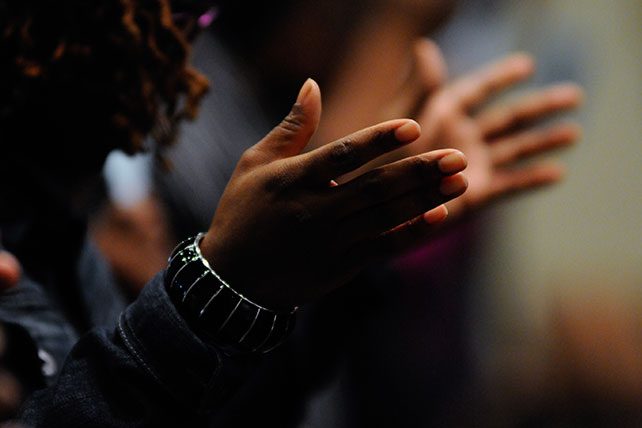One of the most important aspects of effective worship leading is cultivating our sensitivity to the Holy Spirit — the Spirit’s guidance during a worship set. If we don’t care about having a collaborative experience of worship that invites God to bring his “in the moment” touch to what we are doing on a Sunday, then we are song leading – not worship leading.
Should I repeat this chorus? Should this musical moment rise or fall, as I sense something is happening in the congregation? Should the voices stop, and the instruments keep going? Should I end this song now, to get to the next one sooner than I had planned?
All of these questions point back to our ability to get beyond being “song leaders” in our communities, and to grow in sensitivity to tthe Holy Spirit, becoming the “worship leaders” the Body of Christ needs.
9 Ways a Worship Leader Can Develop Sensitivity to the Holy Spirit
Here are some practical tips I’ve drawn from others, and from my own experience as a worship leader seeking to respond to the Spirit’s leading in gathered worship.
1. Cultivate Your Daily Listening To The Holy Spirit’s Voice.
Without a cultivated, increasing awareness of the Holy Spirit’s voice and activity in your own life, you’ll struggle to discern the work of the Holy Spirit in the midst of the worship environment. Your response will be slow and wooden, when it needs to be quick and fluid. Keep the gears oiled by pressing into the Holy Spirit’s work in your daily life, and learning how to hear the voice of God.
2. Use Your Instrument To Sing Your Prayers In Private.
Your personal, secret place life must include your worship leading instrument on a regular basis. Singing our prayers accompanied by our instrument in private, influences the dynamic of how we lead worship in public. We learn to prayerfully repeat choruses, lean into the sense within us to “go for it,” and perceive when to pull back and allow the instruments to lead. I’m not talking about the time you plan or rehearse your set for Sunday morning. I’m talking about the time you cultivate your secret life with God. We can’t expect to lead in public in a way that is not familiar to us in private. Sing, worship, and pray with your instrument. I can’t emphasize this enough.
3. Sensitively Push The Edges Of The Worship Boundaries In Your Community.
Define the boundaries in your community for worship expression, and aim for the edge of those boundaries. Often worship leaders are so concerned with not offending anyone (and there is a quality of this attitude that is good and right as we serve our leaders and community), they stay 10 feet away from the edge at all times. With a secret life that nurtures and hones your fluidity in communicating with God using your instrument, you’ll find yourself more ready to lean into a moment in which you sense God is inviting you all to a fresh encounter with Him.

